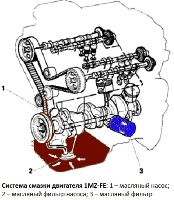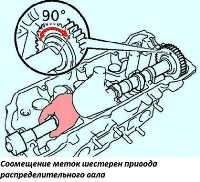The hydraulic pump is replaced if it fails. It requires a special tool to repair it
Remove the right front wheel
Drain power steering fluid
Remove the protective aprons of the front fender
Remove the cooling fan and alternator belt
Disconnect the return hose
Avoid getting fluid on the alternator drive belt
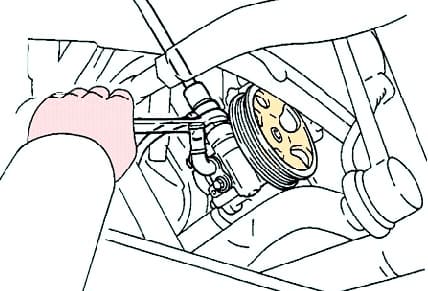
Using a wrench (27 mm), unscrew the mounting bolt and disconnect the discharge pipe (fig. 1)
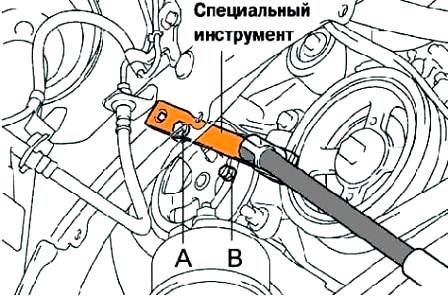
Using the special tool 09249-63010, unscrew the mounting bolts A and B and remove the power steering pump drive belt (Fig. 2)
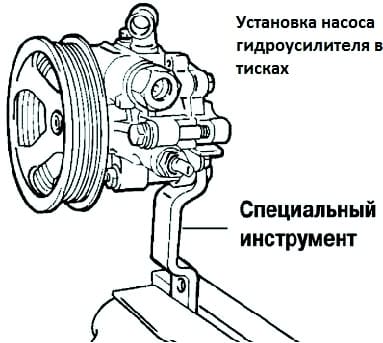
Without removing the special tool, remove the hydraulic booster pump assembly with the discharge pipe
Install the pump in a vise (fig. 3)
Checking the bypass valve
Unscrew the fluid pressure sensor from the bypass valve.
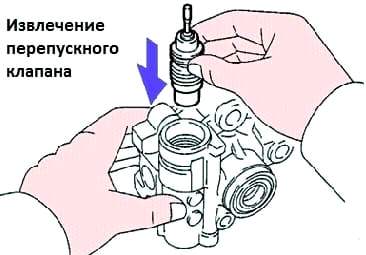
Unscrew the bypass valve and remove the gasket (fig. 4).
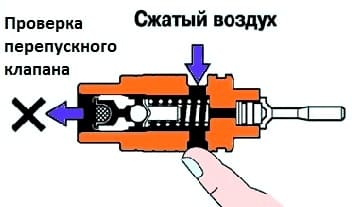
Flush the valve with working fluid and check for leakage.
To do this, close the bottom hole and blow compressed air 392–490 kPa into the opposite hole
Make sure no air escapes from the hole at the end of the valve. If there is a leak, replace the bypass valve (fig. 5).
Installation
Install a new gasket and tighten the bypass valve.
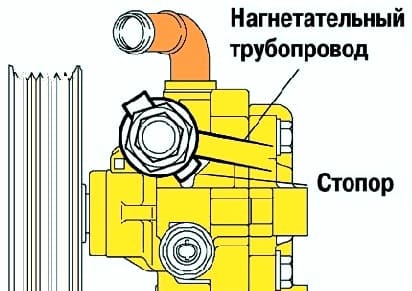
Install the discharge line stopper so that it touches the front bracket as shown in Figure 6 and tighten the bypass valve.
Install the pump assembly with the discharge pipe.
Install the power steering pump drive belt.
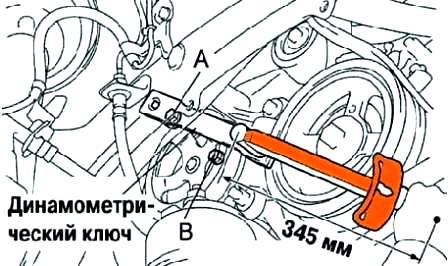
Using a torque wrench with a foot length of 345 mm, tighten bolt "A" (fig. 7).
Tightening torque using a special tool and a 345 mm torque wrench: 29 Nm.
Tighten bolt "B". Tightening torque: 43 Nm.
The tightening torque will be correct if the special tool is parallel to the torque wrench.
Connect the connector to the fluid pressure sensor.
Install two bushings, two retainer plates and tighten the bolt. Tightening torque: 10 Nm.
Connect the return hose.
Install the right protective apron and tighten the two bolts.
Bleed the power steering system.








